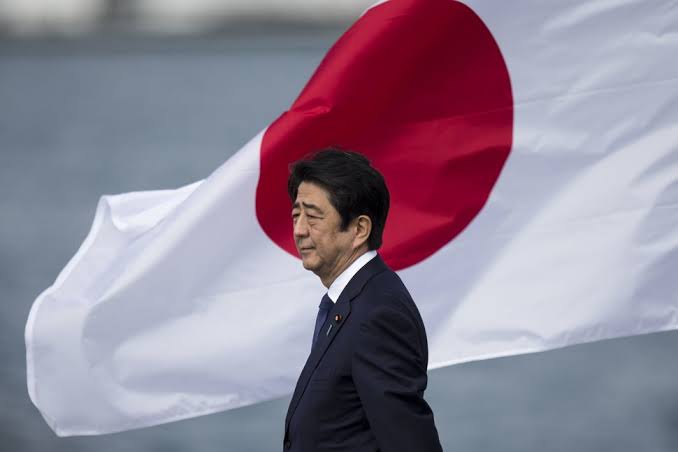Japan’s lost role in Iraq and the Middle East

By Keiko Sakai
Twenty years have passed since the beginning of the Iraq War. The invasion of Iraq was initiated by the administration of then U.S. President George Bush, which was concerned about the possession of weapons of mass destruction (WMD) by the Saddam Hussein regime.
However, no WMD were found in Iraq, and the war ushered in a Pandora’s box of problems at home and abroad that remain sources of crises in international politics to this day.
For example, the Iraq War lies at the root of the global spread of terrorism by the Islamic State (IS) extremist group and other armed units, as well as the increase in refugees due to frequent civil wars.
The “Three Trillion Dollar War,” as U.S. Nobel laureate in Economics Joseph Stiglitz called it, also had a significant impact on the U.S. economy. The high death toll in the war of more than 4,400 U.S. troops contributed to the U.S. decision to cease to be the “world’s policeman.”
One of the scars of the war is the sectarian conflict. Postwar Iraqi regimes ended up relying heavily on Iran due to the central role played by pro-Iranian Shiite Islamist parties, many of whose members had defected to Iran in the 1980s and 1990s.
Meanwhile, the fact that the prewar regime was led by President Hussein, a Sunni by origin, caused Sunnis to be regarded as supporters of the old regime. Thus, the postwar conflict between government and anti-government factions in Iraq was regarded as “sectarian strife” — Shiite versus Sunni.
This development cast a shadow over the entire Middle East. Iran’s expanding hegemony in Iraq stoked fears in Saudi Arabia, a Sunni-led kingdom facing Tehran on the other side of the Persian Gulf.
In the 1980s, Iraq maintained a certain degree of cooperation with Saudi Arabia and other Gulf monarchies despite their differences of regime type. Their common threat was the Islamic Republic of Iran, established through the Iranian Revolution of 1979. In the Iran-Iraq War, the Gulf monarchies supported Iraq as a bulwark, fearing an “export of the Islamic revolution” from Iran.
That bulwark collapsed at once in the Iraq War. Moreover, it was the United States that removed that counterweight. It is no wonder that the pro-U.S. Gulf monarchies have lost confidence in Washington.
In fact, Saudi Arabia has greatly increased its military spending since 2004. If it can no longer rely on its bulwarks and allies, it will have no choice but to strengthen national defence on its own.
Saudi-Iranian tensions peaked with Saudi Arabia’s severing of diplomatic ties with Iran in 2016. Around that time, the IS emerged in Iraq and Syria, taking control of one-third of both countries. The Iranian Islamic Revolutionary Guard Corps (IRGC) was sent to Syria and Iraq in the IS cleanup campaign, and it has been very successful.
The IS, which upholds strict Sunni Islamism and views Shiites as heretics, is extremely dangerous to Shiite Muslims. In Iraq, Shiite religious authorities have led the way in mobilizing volunteer forces, and militia forces with close ties to Iran have risen to the center of Iraqi politics.
The IRGC was also involved in the civil war in Yemen that flared up again in 2015. Saudi Arabia intervened in Syria and Yemen, supporting the Sunni sides on both fronts. These conflicts turned into “proxy wars” between Tehran and Riyadh.
There were fears that this “cold war in the Middle East” would escalate into a “hot war,” as tankers sailed through the Strait of Hormuz and Saudi oil facilities were attacked in 2019.
The U.S. did not play an effective role in this regional cold war. The Donald Trump administration emphasized its close relationship with Saudi Arabia, resumed sanctions against Iran in 2016, and adopted a hardline policy against Tehran, including the killing of IRGC Quds Force commander Qasem Soleimani in January 2020, but failed to resolve the impasse.
President Joe Biden, meanwhile, has stressed the humanitarian damage caused by the civil war in Yemen as an urgent issue. A ceasefire was reached last year, but little progress has been made from there.
China, in contrast, has played a major role in improving relations between Iran and Saudi Arabia. On March 10, the two Middle Eastern regional powers issued a joint statement, mediated by China, calling for the restoration of diplomatic relations.
China’s growing influence in the Middle East in recent years is undeniable. Yet efforts to mediate between the two rivals have been made by Iraq and Oman, too.
Rising tension between Tehran and Riyadh has subsided after peaking in 2019, and Saudi Arabia and the United Arab Emirates (UAE) have been in contact with Iran under the radar. Mediation by anyone, not necessarily by Beijing, could have improved their ties.
The bigger problem is that the intermediary could not be the United States. The Gulf monarchies’ weakening dependence on the U.S. was more clearly illustrated in its response to Russia’s invasion of Ukraine.
Saudi Arabia, the world’s largest oil producer, has maintained relations with Russia to some extent, by refusing to increase its oil production, as requested by the United States, to mitigate the impact of sanctions against Russia, another big oil producer.
It should be recalled here that when “someone other than the U.S.” was needed in the Middle East in the past, a preferred alternative was Japan.
During the Iran-Iraq War, it was Japan that maintained friendly relations with both Iraq and Iran. Iran was one of the top five recipients of Japanese construction project exports for two years until the year before the Iranian Revolution in 1979, and Iraq from 1977 to 1981.
In the 1980s, Japan, France and Germany competed for the top spot among Iraq’s foreign trade partners. Looking at the nature of exports to Iraq, unlike France, which mainly exported arms, Japan was active in construction projects in the civilian sector, building hospitals, roads and housing. Nearly 5,000 Japanese businessmen were stationed in prewar Iraq and had thorough knowledge of the society there.
In contrast, American companies were not involved in Iraq prior to the 2003 war. Diplomatic relations between Baghdad and Washington had existed for only six years in the late 1980s.
Behind the failure of every postwar U.S.-led economic reconstruction is a lack of experience in Iraq. Soldiers stationed in the country went on duty with pictorial “Iraq culture smart cards” to understand Iraqi society, but they were not usable because they did not match the actual situation.
Herein lies the expectation for Japan in postwar Iraq. Japan knew the affluent Iraq of the prewar era supported by a large middle class regardless of sect or tribe. Japan was once seen as the one that should play a role in Iraq and the Middle East instead of the United States.
This role is now being assumed by China. The U.S. is retreating from the Middle East. And it is unlikely that Japan’s role, which has been lost over the past two decades, can easily be regained.



